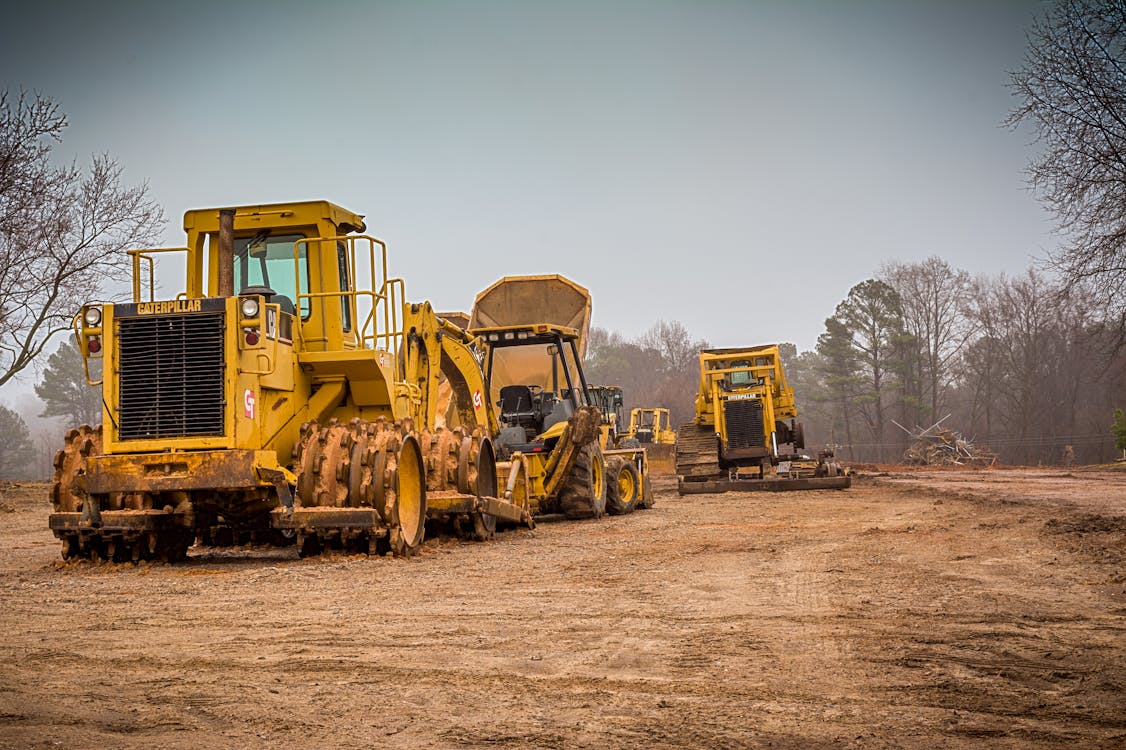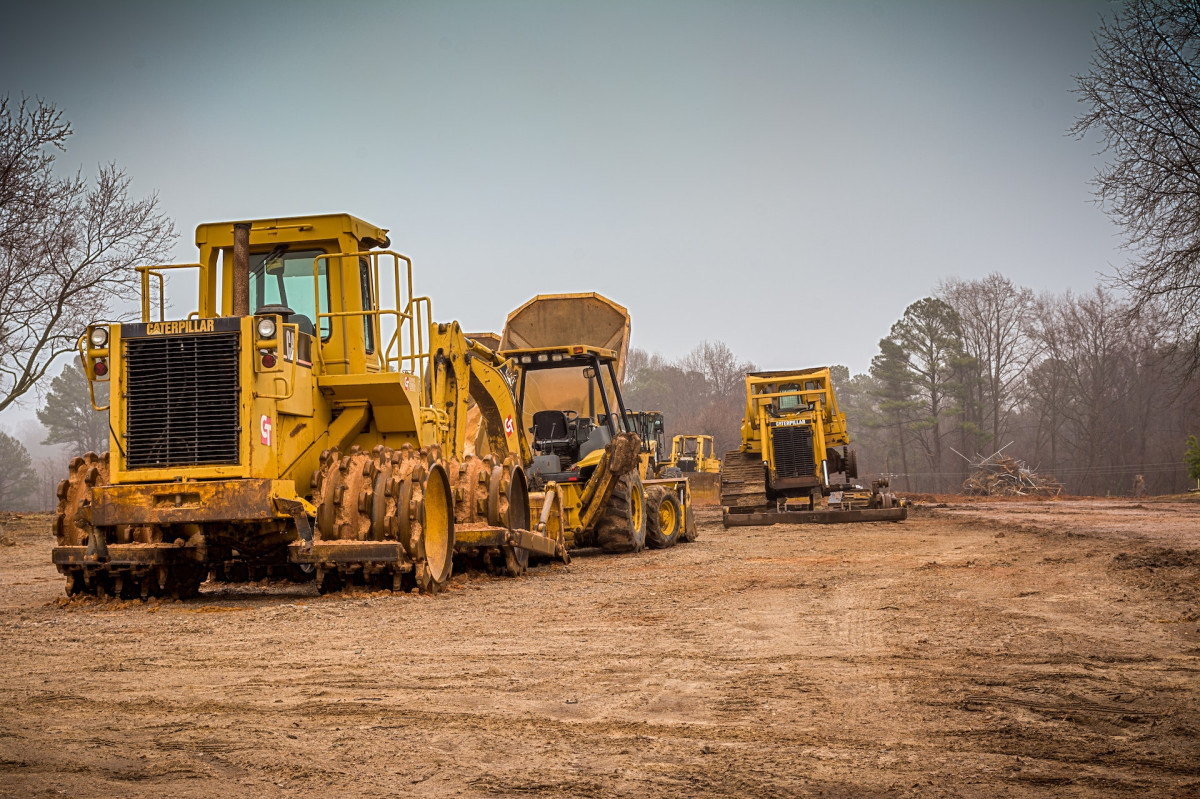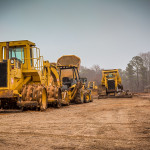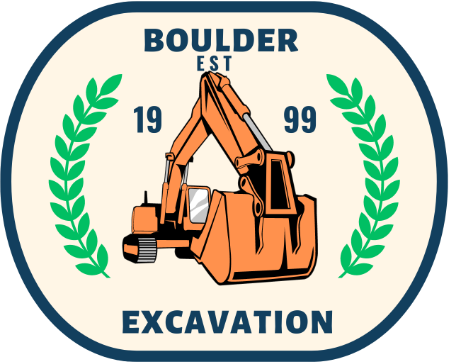Boulder Excavation and Landscape LLC
5505 Valmont Rd LOT 19, Boulder, CO 80301, United States
720-619-2407
Prioritizing Safety in Residential Excavation

Introduction
Excavation projects in Boulder, Colorado are not your typical residential undertakings. Nestled against the majestic backdrop of the Rocky Mountains, this affluent city poses unique challenges and demands the utmost attention to safety. Prioritizing safety in residential excavation is not just a matter of compliance; it is a fundamental requirement to ensure the well-being of workers, protect the environment, and safeguard the surrounding communities. In this article, we will delve into the critical aspects of safety that must be considered when embarking on excavation projects in Boulder, Colorado, emphasizing the importance of adopting a safety-first mindset.
Understanding the Terrain and Challenges in Boulder, Colorado
Boulder, Colorado boasts a breathtaking landscape, nestled against the rugged beauty of the Rocky Mountains. However, this picturesque setting presents unique challenges when it comes to residential excavation projects. The mountainous terrain and diverse geology of the area require careful planning and execution to ensure safety and project success.
- Description of Boulder's mountainous terrain and its impact on excavation projects:
- Steep slopes and uneven ground: The presence of steep slopes and uneven terrain adds complexity to excavation projects, requiring specialized techniques and equipment to ensure stability and prevent landslides or slope failures.
- Rocky soil and bedrock: Boulder is known for its rocky soil and bedrock, which can make excavation more labor-intensive and time-consuming. Contractors must employ suitable excavation methods and tools to overcome these geological obstacles.
- Erosion and runoff: The mountainous terrain in Boulder is susceptible to erosion and runoff during excavation, necessitating proper erosion control measures to mitigate environmental impact.
- Common challenges faced by excavation contractors in the area:
- Limited access and restricted workspace: The narrow roads and restricted space in residential areas of Boulder can pose logistical challenges for excavation equipment and material transport. Careful planning is required to ensure efficient access and minimal disruption to the surrounding community.
- Unpredictable weather conditions: Boulder's proximity to the mountains exposes it to rapidly changing weather patterns. Excavation projects may be affected by heavy rainfall, snowstorms, or high winds, requiring flexibility and contingency plans to maintain safety and productivity.
- Underground utilities: Boulder's older neighborhoods often have complex underground utility networks. Identifying and avoiding gas lines, water pipes, and electrical cables is crucial to prevent accidents, service disruptions, and costly repairs.
- Environmental considerations: Boulder is renowned for its commitment to environmental sustainability. Excavation contractors must adhere to stringent regulations to minimize environmental impact, including proper disposal of excavated materials, erosion control, and restoration of disturbed areas.
Compliance with Local Regulations and Permits
Excavation projects in Boulder, Colorado are subject to a comprehensive regulatory framework designed to protect public safety, preserve the environment, and ensure the integrity of infrastructure. Compliance with local regulations and obtaining the necessary permits is not only a legal requirement but also a vital step in prioritizing safety during residential excavation.
- Explanation of the regulatory framework for excavation projects in Boulder, Colorado:
- City codes and ordinances: Boulder has specific codes and ordinances governing excavation activities, encompassing areas such as noise control, traffic management, erosion control, and environmental protection. Contractors must familiarize themselves with these regulations to avoid penalties and project delays.
- Building permits: Before commencing any excavation project, contractors must obtain the appropriate building permits from the City of Boulder. These permits ensure that the project meets structural and safety requirements and that inspections can be conducted at various stages of the excavation process.
- Utility locates: Excavation contractors are required to contact local utility companies to identify and mark the location of underground utilities before digging. This crucial step helps prevent accidental damage to gas lines, water mains, telecommunications cables, and electrical infrastructure, mitigating the risk of utility disruptions and potential hazards.
- Importance of obtaining necessary permits and adhering to safety standards:
- Legal compliance and liability: Failure to obtain the required permits and adhere to safety standards can result in legal consequences, including fines, project shutdowns, and potential lawsuits. By prioritizing compliance, excavation contractors protect their reputation, maintain client trust, and demonstrate professionalism.
- Safety and risk management: Local regulations and permits are designed to ensure safety during excavation projects. Adhering to these standards minimizes the risk of accidents, injuries, and property damage. It also promotes a culture of safety within the excavation team and fosters a safe working environment for all stakeholders involved.
- Environmental stewardship: Compliance with environmental regulations and permits allows excavation contractors to contribute to Boulder's commitment to sustainability. By implementing measures to minimize environmental impact and promote responsible excavation practices, contractors help preserve the natural beauty of the area and protect its ecological balance.
Next, let's explore the importance of hiring experienced and qualified excavation contractors for residential projects in Boulder, Colorado.
Hiring Experienced and Qualified Excavation Contractors
When it comes to residential excavation projects in Boulder, Colorado, the expertise and professionalism of the excavation contractors play a crucial role in ensuring safety and project success. Here are the key considerations when hiring excavation professionals:
- Researching and selecting reputable excavation contractors in Boulder:
- Seek referrals and recommendations: Reach out to trusted sources, such as friends, neighbors, or local construction professionals, who have had positive experiences with excavation contractors in the area. Their insights can provide valuable guidance in your search.
- Online reviews and ratings: Utilize online platforms and review websites to gauge the reputation and track record of potential excavation contractors. Look for consistently positive feedback and high ratings, indicating a history of satisfied customers.
- Portfolio and past projects: Request to see the portfolio of excavation contractors to assess the scope and quality of their previous work. This will help determine if their expertise aligns with your project requirements.
- Factors to consider when hiring excavation professionals:
- Experience and expertise: Prioritize contractors with extensive experience in residential excavation projects in Boulder, specifically in challenging terrain and similar project scopes. Experienced professionals possess the knowledge and skills to navigate potential obstacles and ensure safety.
- Equipment and resources: Inquire about the excavation contractor's equipment fleet and resources. Well-maintained, modern machinery and tools demonstrate the contractor's commitment to efficiency and productivity, while also enhancing safety on the job site.
- Project management and communication: Effective project management and clear communication are vital for a successful excavation project. Evaluate the contractor's ability to coordinate with other stakeholders, provide updates, and address any concerns or queries promptly.
- Flexibility and problem-solving skills: Excavation projects in Boulder can present unforeseen challenges. Look for contractors who demonstrate adaptability, problem-solving abilities, and a proactive approach to overcoming obstacles that may arise during the excavation process.
- Checking licenses, certifications, and insurance of contractors:
- Valid licenses: Ensure that the excavation contractor holds the necessary licenses required by the state of Colorado and Boulder city authorities. Valid licenses indicate that the contractor meets the minimum requirements for operating legally and professionally.
- Certifications and training: Inquire about certifications and training programs that the excavation team has undergone. Certifications in areas such as excavation safety, equipment operation, and environmental compliance demonstrate a commitment to industry best practices and ongoing professional development.
- Insurance coverage: Verify that the excavation contractor carries appropriate insurance coverage, including general liability insurance and workers' compensation insurance. Adequate insurance protects you from potential liability in case of accidents or damages that may occur during the project.
Conducting Comprehensive Site Assessments
Before breaking ground on a residential excavation project in Boulder, conducting thorough site assessments is imperative to ensure safety and project efficiency. Here's why comprehensive site assessments are crucial:
- Importance of site assessments before excavation begins:
- Hazard identification and risk mitigation: Site assessments allow excavation contractors to identify potential hazards and risks associated with the property. This includes factors such as unstable slopes, underground utilities, existing structures, and environmental sensitivities. By proactively identifying these risks, appropriate measures can be implemented to mitigate them during the excavation process.
- Planning and project design: Site assessments provide critical information for planning the excavation project. They help determine the most suitable excavation methods, required equipment, and necessary permits. Additionally, site assessments enable precise project design, ensuring that excavation activities align with the property's specific requirements and constraints.
- Cost estimation and scheduling: By conducting a thorough site assessment, excavation contractors can accurately estimate the costs associated with the project. They can account for potential challenges, such as difficult soil conditions or utility conflicts, and incorporate them into the project timeline. This helps prevent unforeseen delays and cost overruns during the excavation process.
- Identifying potential hazards and risks on the property:
- Soil stability and geological considerations: Assessing the soil conditions is crucial to determine the stability and load-bearing capacity of the ground. This information helps establish the appropriate excavation techniques and support measures required to prevent slope failures or collapses during the project.
- Underground utilities and infrastructure: Locate and identify underground utilities, such as gas lines, water pipes, electrical cables, and telecommunications infrastructure. Accidental damage to these utilities can pose significant safety risks, service disruptions, and financial liabilities. By pinpointing their exact locations, excavation contractors can plan excavation activities to avoid these utilities.
- Environmental factors: Consider the environmental sensitivities of the property and its surroundings. Evaluate potential impacts on nearby water bodies, protected areas, and vegetation. This information allows contractors to implement erosion control measures, minimize disturbances to sensitive habitats, and ensure compliance with environmental regulations.
By prioritizing comprehensive site assessments, excavation contractors in Boulder can proactively address potential risks, ensure the safety of workers and the surrounding environment, and optimize project execution.
Next, let's explore the implementation of proper safety measures during residential excavation projects in Boulder, Colorado.
Prioritizing Utility Line Locating and Avoidance
Excavation projects in Boulder, Colorado, must prioritize the identification and avoidance of underground utility lines. Failing to locate and protect these utilities can result in hazardous situations, service disruptions, and costly repairs. Here's what to consider:
- Understanding the importance of locating and marking utility lines:
- Safety and injury prevention: Unintentional damage to utility lines can lead to serious injuries to workers and even fatalities. Locating and marking utility lines helps prevent accidental strikes during excavation.
- Service continuity: Damaging utility lines can disrupt essential services, such as electricity, gas, water, and telecommunications. Avoiding these lines ensures uninterrupted service for both the project site and neighboring properties.
- Working with utility companies to identify and avoid underground utilities:
- Contact utility companies: Before excavation, notify utility companies serving the area to request utility line locating services. They will send technicians to mark the locations of underground utilities using color-coded flags or paint.
- Respect the markings: Once utility lines are marked, ensure that workers understand and respect the markings. Avoid excavating within the designated tolerance zone around the marked utilities.
- The risks associated with damaging utility lines during excavation:
- Personal and public safety: Damaging utility lines can lead to electrocution, explosions, or hazardous material leaks, endangering workers and the public. These incidents can have severe consequences, both in terms of safety and legal liability.
- Financial implications: Excavation contractors can be held responsible for the costs associated with repairing damaged utility lines. These expenses can be substantial and can include repair fees, service disruptions, fines, and legal fees.
By prioritizing utility line locating and avoidance, excavation contractors in Boulder can minimize the risks of accidents, service interruptions, and financial liabilities associated with damaging underground utilities.
Now that we have explored safety measures and utility line locating, let's delve into the importance of environmental considerations during residential excavation projects in Boulder, Colorado.
Responding to Emergency Situations
In the realm of residential excavation projects in Boulder, Colorado, it is crucial to be prepared for potential emergencies. By developing and implementing robust emergency response plans, excavation contractors can ensure the safety of their workers and minimize the impact of unforeseen events. Here are key steps to consider:
- Developing emergency response plans for excavation projects:
- Risk assessment: Identify potential emergency scenarios specific to the excavation project and its surroundings. This may include incidents such as cave-ins, equipment malfunctions, hazardous material spills, or severe weather events.
- Emergency procedures: Establish clear and concise procedures for responding to emergencies, including evacuation plans, communication protocols, and roles and responsibilities of workers in emergencies.
- Emergency contact information: Compile a list of emergency contact numbers, including local emergency services, utility companies, and project stakeholders. Ensure that this information is readily accessible to all workers on the job site.
- Training workers on emergency procedures and first aid:
- Emergency training: Provide comprehensive training to workers on emergency procedures, evacuation routes, and the proper use of emergency equipment such as fire extinguishers and first aid kits.
- First aid and CPR: Ensure that designated personnel on the excavation site are trained in first aid and CPR techniques. This enables them to respond effectively to medical emergencies until professional help arrives.
- Coordinating with local emergency services for prompt assistance:
- Establish communication channels: Establish a rapport with local emergency services, including fire departments, police departments, and medical services. Share project details and contact information to facilitate prompt response in case of an emergency.
- Site access and safety information: Provide emergency services with relevant information about the excavation site, including access points, potential hazards, and any ongoing excavation activities. This helps emergency responders navigate the site safely and efficiently.
Final Thoughts
Prioritizing safety in residential excavation projects is of utmost importance in Boulder, Colorado. The challenging terrain, regulatory requirements, and affluent nature of the city make safety a critical consideration. By understanding the terrain and challenges specific to Boulder, complying with local regulations and permits, hiring experienced and qualified excavation contractors, conducting comprehensive site assessments, implementing proper safety measures, prioritizing utility line locating and avoidance, and being prepared for emergencies, excavation projects can be carried out with the highest level of safety and success.
Boulder Excavation and Landscape LLC
5505 Valmont Rd LOT 19, Boulder, CO 80301, United States
720-619-2407





